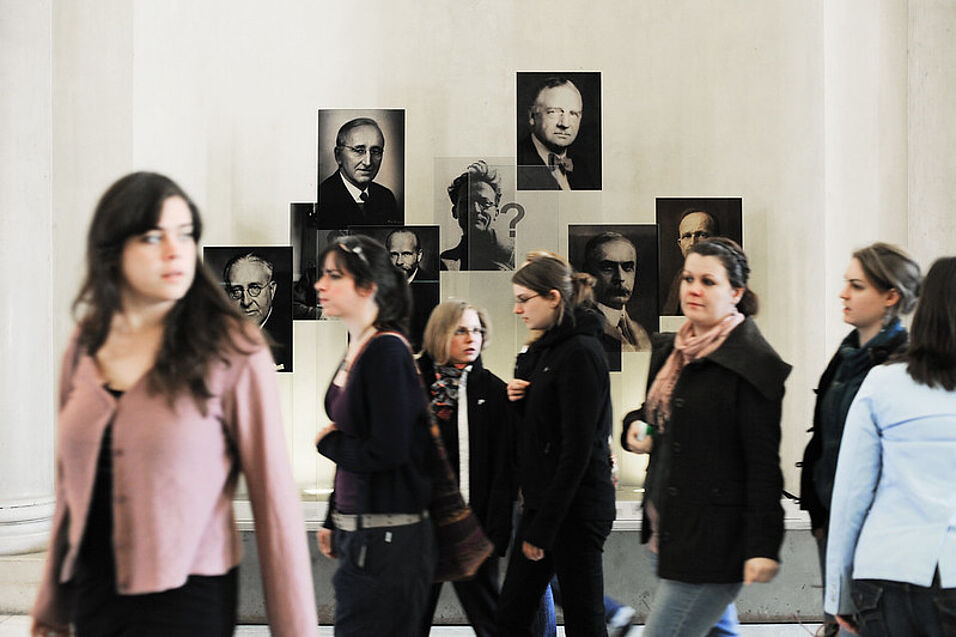- Rojan Amini-Nejad | Institut für Klinische und Gesundheitspsychologie
Targeting the Mental Health of Asylum Seekers in Austria
- Yifan Bao | Institut für Physiologische Chemie
Dietary Oxidized Lipids Affecting Inflammatory Response of Intestinal Cells
- Valentina Budroni | Max Perutz Labs Vienna
Identification of Mechanisms Controlling Stability of the Cancer Hyper-Mutator APOBEC3H
- Eline Castelijns | Institut für Sozial- und Kulturanthropologie
Land Deals, Residents’ Voices and Entangled Landscapes: Diverse Engagements of Rural Residents in Zambia with Processes of Large-Scale Land Acquisition
- Francesca Susanna Croce | Institut für Kunstgeschichte
The Divine Master: Raphael and the Works of Giovan Pietro Bellori and Carlo Maratti
- Katharina Danner | Institut für Bildungswissenschaft
Modi politischer Partizipation als Ausdruck sozialer Ungleichheit
- Michael Duncan | Institut für Soziologie
Jugendliche Perspektiven auf soziale Ungleichheit: Zwischen Selbstverantwortung, Selbstverwirklichung und Reproduktion
- Hannah Greber | Institut für Publizistik- und Kommunikationswissenschaft
Immersive Journalism – The Future of the News?
- Daniel Gunz | Institut für Geschichte
„pervers“ – missbraucht – verurteilt. Homosexualität, sexuelle Gewalt unter Männern und deviante Männlichkeiten in den Armeen Österreich-Ungarns (1900–1918)
- Daniel Haider | Fakultät für Mathematik
Structured Modeling in a Deep Learning Setting Using Frame Theory
- Gustav Jonsson | Vienna BioCenter PhD Program
Elucidating the Role of CBL-B in Dendritic Cell Activation
- Lisa Kirchner | Institut für Geschichte
Kriegerische und sexuelle Gewalterfahrungen in Selbstzeugnissen des Ersten Weltkrieges (Österreich-Ungarn)
- Magdalena Lohninger | Institut für Sprachwissenschaft
A-Percolation into CP
- Paul Malschinger | Institut für Soziologie
Ziele und deren Stabilität über die Zeit von Jugendlichen in Wien
- Toni Manolova | Max Perutz Labs Vienna
The Function of CCDC174 - a Novel Component of the Exon Junction Complex
- Larissa Mohr | Institut für Kunstgeschichte
Die Zeichnungen von Giovanni da Udine (1487–1561)
- Argam Ohanyan | Fakultät für Mathematik
Topics in Nonsmooth Spacetime Geometry: Singularity Theorems, Spacetime Extensions and Rigidity
- Florian Pühringer | Vienna BioCenter PhD Program
Molecular Mechanisms of Eukaryotic Toxin Antidote Elements
- Gregor Schima | Institut für Europäische und Vergleichende Sprach- und Literaturwissenschaft Metatheatralität in der inszenierten Oper – Analyse und Theorie
- David Smrček | Institut für Geschichte
Street Politics and Collective Violence in Cisleithania in 1897
- Konstantina Despoina Stavrou | Institut für Staats- und Verwaltungsrecht
A Double-Edged Sword? Assessing the Human Rights Impact of the Introduction of User-Generated Digital Evidence in International Criminal Proceedings
- Alexander Stockinger | Max Perutz Labs Vienna
Dissecting Regenerative Plasticity by a Cell-Based Approach
- Aleksandr Tsarev | Max Perutz Labs Vienna
Dissecting the Fundamental Principles of piRNA Homeostasis
- Achilleas Tsarpalis-Fragkoulidis | Institut für Klinische und Gesundheitspsychologie
Please Don't Compliment Me! – The Fear of Positive Evaluation in Social Anxiety
- Saskya Tschebann | Institut für Kultur- und Sozialanthropologie
As You Lay Dying: End-of-Life Doulas Imagining a ‘Good’ Death at the Interstices of Public and Private Care?
- Liam Urban | Fakultät für Mathematik
On the Big Bang Formation for Cosmological Solutions to Non-Vacuum Einstein Equations
- Kevin Walkner | Institut für Philosophie
Empirical Grounding of Models Relevant for Policy

